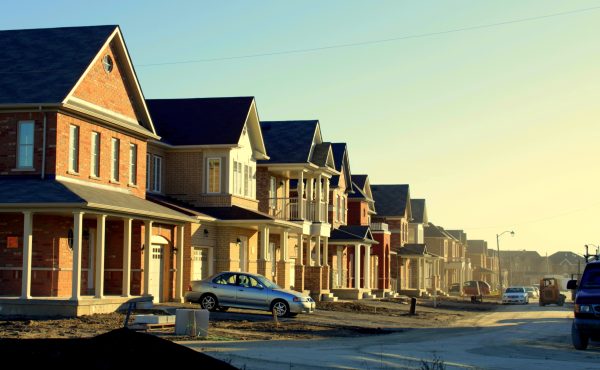


Here’s an alternative plot line for the fall of our civic discontent. Imagine if Kathleen Wynne was running for mayor instead of George Smitherman. Keep the rest of the mayoral slate the same. What would happen?
The parallels between the two are impossible to ignore. They’ve both been inner-sanctum cabinet ministers in Dalton McGuinty’s government. They each started their political careers as relentless critics of Mike Harris. Both have substantial local experience (Smitherman as Barbara Hall’s executive assistant; Wynne as a school trustee). They pursued controversial reforms within their portfolios (Smitherman with the Green Energy Act as minister of the evnironment; Wynne with class size caps as education minister). And they’re both openly gay.
Wynne, of course, is a cooler, more cerebral presence than the combative former deputy premier, although she’s no less fierce a partisan.
Now here’s an interesting question to ponder: Would progressives attack Wynne with the same zeal as they’ve assailed Smitherman, particularly on the broad question of their roles within the highly centralized McGuinty government? Sure, Wynne could duck the e-health accusations to a degree, although opponents would surely attempt to tar her with the same broad brush, given her role as a sitting cabinet minister. (Wynne, in turn, would probably be smart enough not to duck responsibility by blaming e-health on a former cabinet colleague.)
But on more current points of intergovernmental friction – e.g., the slow-down in the Transit City funding, Presto, pace of uploading, the premier’s steadfast refusal to split the TTC’s operating deficit – Wynne would be singing from precisely the same hymn book: “it’s the deficit”, “it’s not a cancellation but a delay,” etc., etc.
Point is, in many respects, she’d be a very similar candidate, ideologically speaking. Whether she would have tried so hard to woo suburban conservatives, as Smitherman has done with his tax freeze pledge, is debatable. But there’s no question that a Liberal with her pedigree would be talking tough choices, too.
This is all moot of course, but I raise the idea because it puts David Miller’s endorsement of Joe Pantalone in a somewhat different, and less savory, light.
On the face of it, Miller came out in favour of his trusty lieutenant because Pantalone’s program is most obviously a continuation of Miller’s agenda.
But, of course, there’s more Miller’s vote of confidence than just policy, isn’t there? The animosity between Miller and Smitherman goes back to Barbara Hall’s desperate bid to elbow him out of the 2003 election. (Smitherman, as most of us have forgotten, publicly backed Miller’s bid to block the bridge to the island airport, but Hall’s team enlisted top-level NDP emissaries to pressure Miller to withdraw.)
That bitterness never disappeared (just ask Joe Mihevc), as Miller made plain when, during his endorsement press conference last week, he said, pointedly, “I think people want to vote for something and you don’t vote for somebody because you think they’re awful, just because they’re slightly less awful than somebody else.”
This is speculative, but I don’t think Miller would have taken cheap shots at Wynne, even if she had run an opportunistic campaign aimed at exploiting local frustration with City Hall. Why? There’s no history, as with Smitherman.
Surely, after seven years in power, it’s time for Miller to bury the axe. Absent reconciliation, the mayor should have kept his nose out of this election, as most self-respecting retiring leaders do upon leaving office. Rather, his subtext-laden endorsement — reminded me of how the festering Jean Chretien/Paul Martin feud injected a very damaging sort of poison into the veins of Liberal party.
Obviously, that kind of split has been a boon to Rob Ford. But the sniping can’t go on. Regardless of who wins the election, the city’s broad centre-left needs to figure out how to extinguish those old antagonisms and get back to the constructive relationship that existed three or four years ago, when local progressives and provincial Liberals actually knew how to do business with one another.
SPIN WATCH
When Rob Ford released his financial plan last week, he made an intriguing promise that could suggest a shifting dynamic in the polls. With the $1.67 billion surplus he promises to pull out of a hat after four years, Ford says he’d put more funding into daycare, affordable housing and other such services. All evidence to the contrary, Ford has often described himself as social “bleeding heart,” the guy who claims to be a kind of guardian angel for families living in social housing.
Here’s another interpretation of that curious pledge: perhaps Ford’s internal polling is showing that his growth trajectory has crested, as experienced Toronto political analysts have long predicted. With less than two weeks to go and Rocco Rossi still driving hard to win over the suburban right, maybe Super Ford has finally realized he’s got to grow beyond his base if he wants to win. Just asking….
photo by Gabriel Li




3 comments
I don’t think anyone tuned into Miller’s endorsement. I also don’t believe that any of the historical animosity between Smitherman and Miller has been relevant in this campaign. This election is about discontent. John, you should brush up on your Machiavelli.
Toronto should consider having municipal political parties. It would give voters a better grasp of the ideologies of the mayoral candidates, and would also remove the surprise of candidate endorsement. Does anyone know the voter turn out in Canadian cities with municipal political parties?
@Adrian — In 2005, Vancouver’s voter turnout was 48%, which is not great, but quite a bit higher than Toronto’s. They have a long-established municipal party system, with councillors elected at large, rather than by ward.